
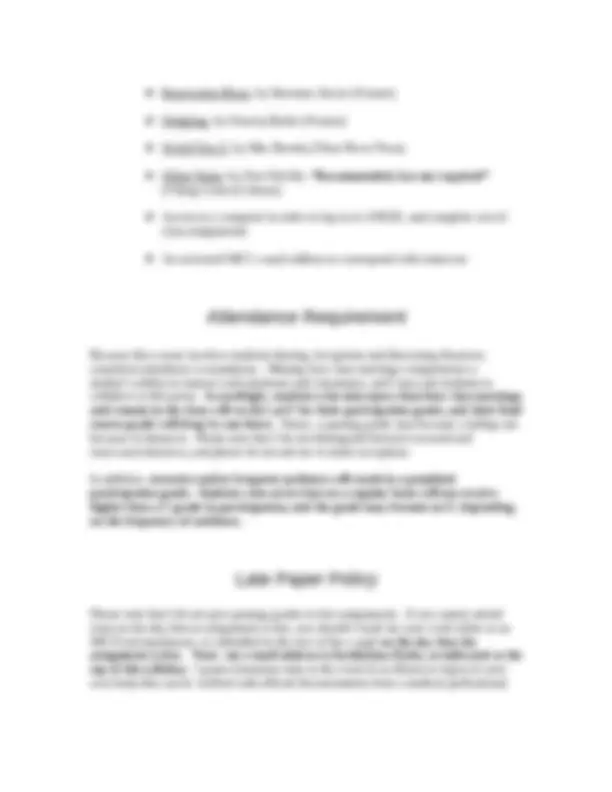
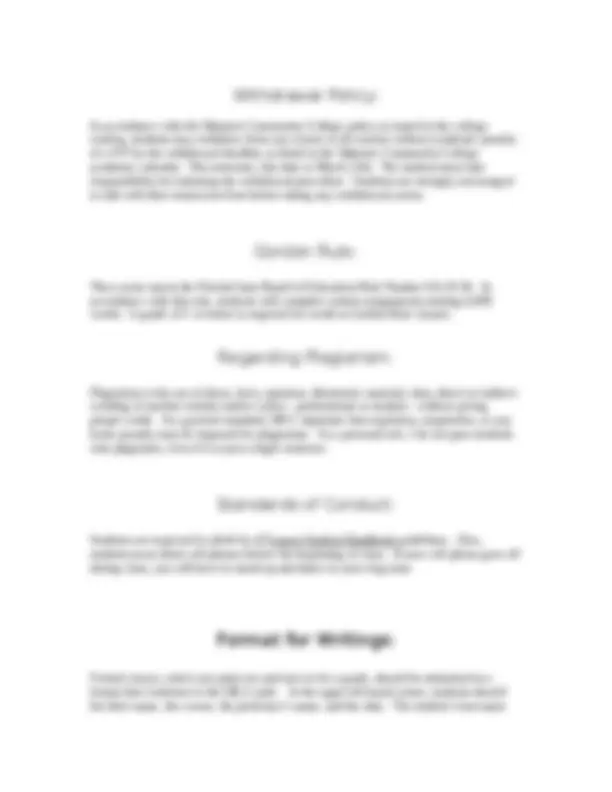
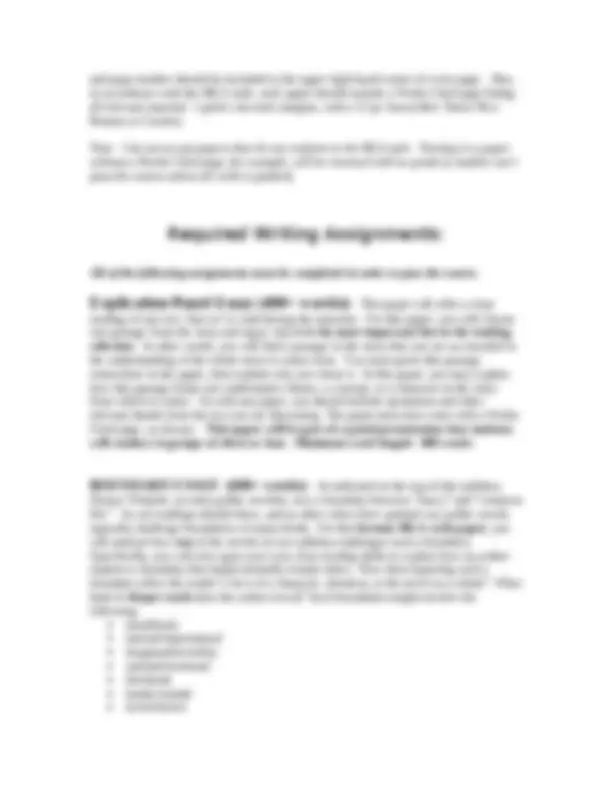
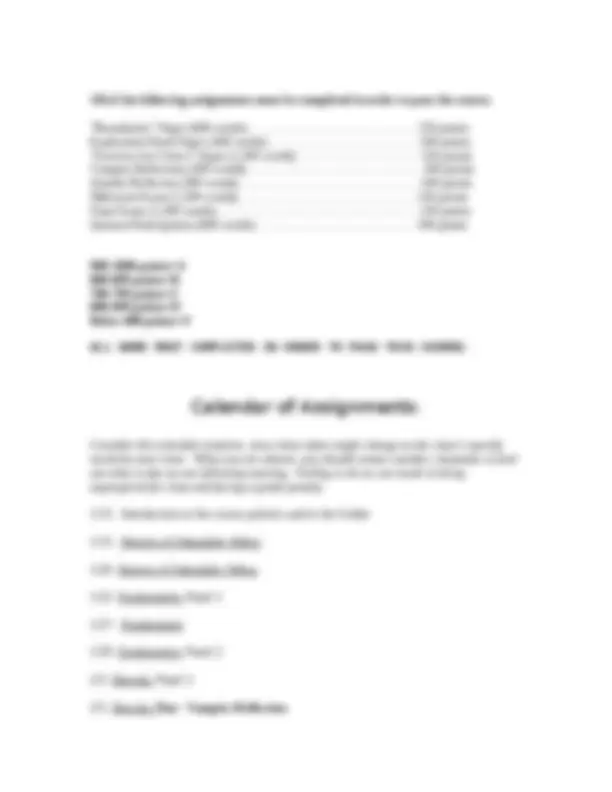
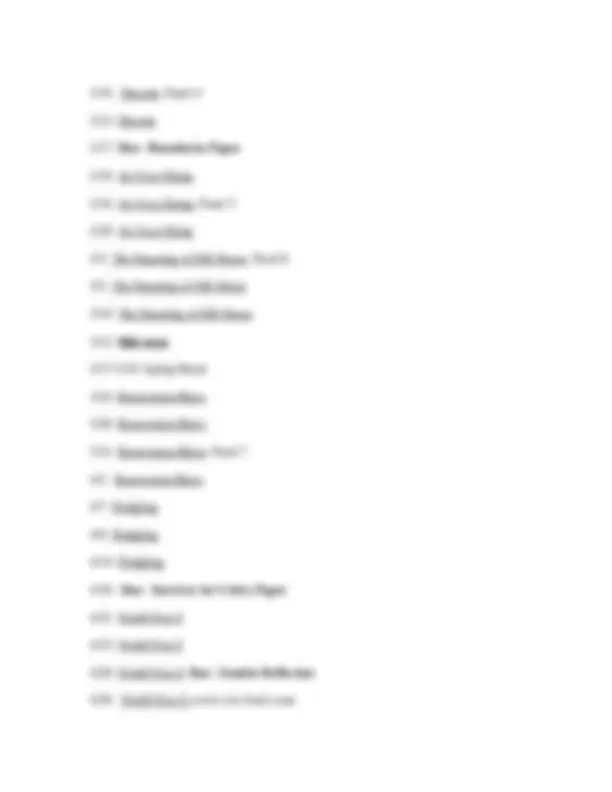



Study with the several resources on Docsity

Earn points by helping other students or get them with a premium plan


Prepare for your exams
Study with the several resources on Docsity

Earn points to download
Earn points by helping other students or get them with a premium plan
Community
Ask the community for help and clear up your study doubts
Discover the best universities in your country according to Docsity users
Free resources
Download our free guides on studying techniques, anxiety management strategies, and thesis advice from Docsity tutors
Information about a college course titled 'lit 2012 - the novel' offered at manatee community college. The course, taught by dr. Doug ford, explores the origin and development of literary conventions unique to the novel genre through various historical periods. Students are required to demonstrate college-level writing skills, academic research skills, and knowledge of culturally diverse authors and literary movements.
Typology: Study Guides, Projects, Research
1 / 10

This page cannot be seen from the preview
Don't miss anything!







“... the great resources of fancy have been damned up, by a strict adherence to common life.” --Horace Walpole, in the preface to the second edition of The Castle of Otranto “The feeling most consistently evoked in Gothic tales is the terror of the life-threatened creature, wholly at the mercy of forces that are neither controllable, nor understandable; a terror that at its most elemental level makes little distinction between ‘natural’ and ‘supernatural’ causes.” --Valdine Clemens, The Return of the Repressed: Gothic Horror from The Castle of Otranto to Alien
Office: 645 Office Hours: 9-10, 12-1 MWF 2:30-3:30 MW 9-9:30; 11-12:30; 2-3 TR Office Phone: 408- E-mail: fordd@mccfl.edu Web page: http://faculty.mccfl.edu/fordd/fordd.htm MCC Virtual Library: http://www.mccfl.edu/pages/109.asp
Prerequisites: ENC 1101 and concurrent registration in or completion of ENC 1102 with a grade of "C" or better. This course meets the Area IV requirement for A.A./A.A.S./A.S. general education requirements, the 6,000-word Gordon Rule requirement and part of the six- hour International/Intercultural requirement. The course examines the origin and development of literary conventions unique to the novel genre as developed by writers from a variety of cultural experiences.
The student, at the completion of the course, should be able to
In accordance with the Manatee Community College policy as stated in the college catalog, students may withdraw from any course or all courses without academic penalty of a WF by the withdrawal deadline as listed in the Manatee Community College academic calendar. This semester, this date is March 23rd. The student must take responsibility for initiating the withdrawal procedure. Students are strongly encouraged to talk with their instructors first before taking any withdrawal action.
This course meets the Florida State Board of Education Rule Number 6A-10.30. In accordance with this rule, students will complete written assignments totaling 6, words. A grade of C or better is required for credit in Gordon Rule classes.
Plagiarism is the use of ideas, facts, opinions, illustrative material, data, direct or indirect wording of another scholar and/or writer—professional or student—without giving proper credit. As a general standard, MCC stipulates that expulsion, suspension, or any lesser penalty may be imposed for plagiarism. As a personal rule, I do not pass students who plagiarize, even if it is just a single sentence.
Students are expected to abide by all Lancer Student Handbook guidelines. Also, students must silent cell phones before the beginning of class. If your cell phone goes off during class, you will have to stand up and dance to your ring-tone. Format for Writings: Formal essays, which you print out and turn in for a grade, should be submitted in a format that conforms to the MLA style. In the upper left hand corner, students should list their name, the course, the professor’s name, and the date. The student’s last name
and page number should be included in the upper right hand corner of every page. Also, in accordance with the MLA style, each paper should include a Works Cited page listing all relevant material. I prefer one-inch margins, with a 12 pt. font (either Times New Roman or Courier). Note: I do not accept papers that do not conform to the MLA style. Turning in a paper without a Works Cited page, for example, will be returned with no grade (a student can’t pass the course unless all work is graded). Required Writing Assignments: All of the following assignments must be completed in order to pass the course.
reading of one text that we’ve read during the semester. For this paper, you will choose one passage from the story and argue why it is the most important line in the reading selection. In other words, you will find a passage in the story that you see as essential to the understanding of the whole story it comes from. You must quote this passage somewhere in the paper, then explain why you chose it. In this paper, you may explain how this passage helps you understand a theme, a concept, or a character in the story from which it comes. As with any paper, you should include quotations and other relevant details from the text you are discussing. The paper must also come with a Works Cited page, as always. This paper will be part of a panel presentation that students will conduct in groups of three or four. Minimum word length: 400 words
Horace Walpole, an early gothic novelist, saw a boundary between “fancy” and “common life.” As our readings should show, and as other critics have pointed out, gothic novels typically challenge boundaries of many kinds. For this formal, MLA-style paper , you will analyze how one of the novels on our syllabus challenges such a boundary. Specifically, you will rely upon your own close-reading skills to explore how an author ruptures a boundary that might normally remain intact. How does rupturing such a boundary affect the reader’s view of a character, situation, or the novel as a whole? What kind of deeper truth does the author reveal? Such boundaries might involve the following: mind/body natural/supernatural imagination/reality rational/irrational life/death inside/outside terror/horror
will also respond to the postings of at least two other students. The guidelines for the “vampire reflection” apply to this one as well. Not following these guidelines will affect your point total.
will have to identify significant passages and explain why they are relevant to the texts from which they come. Students who do not keep up with the reading schedule will find these very difficult to pass. There will be no multiple choice or fill-in-the-blank exams in this course.
completed reading assignments. Reading quizzes will take place at the very beginning of class, and students who arrive late cannot take these quizzes. If you arrive while I am administering one of these quizzes, I will ask you to wait outside the door until they are finished. At the end of the semester, I will average your quiz grades and use these as the basis for your participation grade. Your participation grade will go up or down from there, depending upon the quality and quantity of your contributions to class discussions. Also, because this is a web-enhanced course, I may occasionally ask you to log-in to ANGEL in order to participate in an online discussion. Failure to participate in those discussions in the assigned way will result in the loss of participation points. To get an A in participation is pretty simple. You must do the following: Get an A average on your quizzes Show some interest in the material by offering thoughts, questions, and feedback during class discussion (I’m not grading you on your napping skills). Complete miscellaneous in-class writing assignments in good faith and effort Contribute in a meaningful way to your panel discussion Have faithful attendance (missing less than four classes). Arrive on time Failure to do any of these will lower your participation grade. Disruption of class—for example, carrying on a private discussion or talking on your cell phone during course proceedings—will result in a participation grade of no higher than a D. Also, not attending class on the day of your panel will result in a drastically lowered participation grade, and your final course grade will drop two letters. I will be very stingy about giving make-ups for this assignment, so don’t get caught off guard. Grading:
All of the following assignments must be completed in order to pass the course. “Boundaries” Paper (600 words)............................ 150 points Explication/Panel Paper (400 words)......................... 100 points “Survivor for Critics” Paper (1,200 words).................... 150 points Vampire Reflection (300 words)............................. 100 points Zombie Reflecton (300 words).............................. 100 points Mid-term Exam (1,200 words).............................. 150 points Final Exam (1,200 words)................................. .150 points Quizzes/Participation (600 words).......................... 100 points 900-1000 points=A 800-899 points=B 700-799 points=C 600-699 points=D Below 600 points=F ALL WORK MUST COMPLETED IN ORDER TO PASS THIS COURSE. Calendar of Assignments: Consider this schedule tentative, since these dates might change as the class’s specific needs become clear. When you are absent, you should contact another classmate to find out what is due on our following meeting. Failing to do so can result in being unprepared for class and facing a grade penalty. 1/13: Introduction to the course policies and to the Gothic 1/15: Horrors of Oakendale Abbey 1/20: Horrors of Oakendale Abbey 1/22: Frankenstein; Panel 1 1/27: Frankenstein 1/29: Frankenstein; Panel 2 2/3: Dracula; Panel 3 2/5: Dracula; Due: Vampire Reflection
5/4-5/8: Final Exam Week